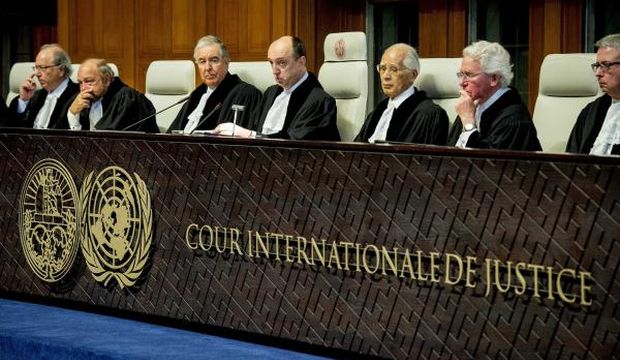
President of the Court Judge Peter Tomka (C) during the verdict on genocide claims brought up by Croatia against Serbia, at the UN International Court of Justice in The Hague, The Netherlands, on February 3, 2015. (EPA/Robin Van Lonkhuijsen)
The Hague, Netherlands, AP—The United Nations’ top court ruled Tuesday that Serbia and Croatia did not commit genocide against each other’s people during the bloody 1990s wars sparked by the breakup of the former Yugoslavia.
The ruling could help put to rest lingering animosities between the Balkan neighbors.
The International Court of Justice said Serb forces did commit widespread crimes in Croatia early in the war, but they did not amount to genocide. The 17-judge panel then ruled that a 1995 Croat offensive to win back territory from rebel Serbs also featured serious crimes, but did not reach the level of genocide.
Tuesday’s decision was not unexpected, as the UN’s Yugoslav war crimes tribunal, a separate court also based in The Hague, has never charged any Serbs or Croats with genocide in one another’s territory.
Croatia brought the case to the world court in 1999, asking judges to order Belgrade to pay compensation. Serbia later filed a counterclaim, alleging genocide by Croat forces during the 1995 “Operation Storm” military campaign.
Rejecting both cases, court President Peter Tomka stressed that many crimes happened during fighting between Serbia and Croatia and urged Belgrade and Zagreb to work together toward a lasting reconciliation.
“The court encourages the parties to continue their cooperation with a view to offering appropriate reparation to the victims of such violations, thus consolidating peace and stability in the region,” Tomka told a packed Great Hall of Justice at the court’s Hague headquarters, the Peace Palace.
Decisions by the International Court of Justice are final and legally binding.
